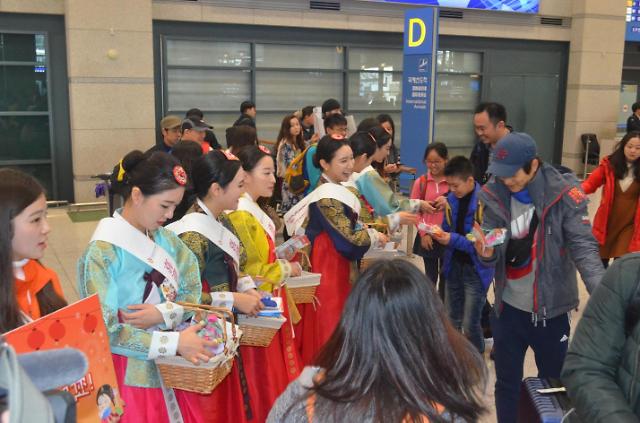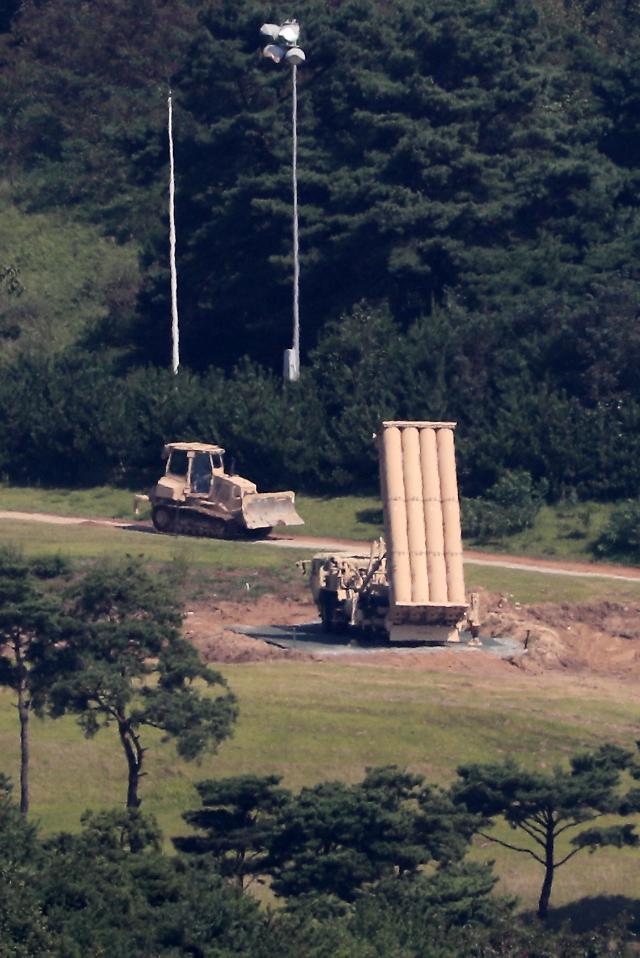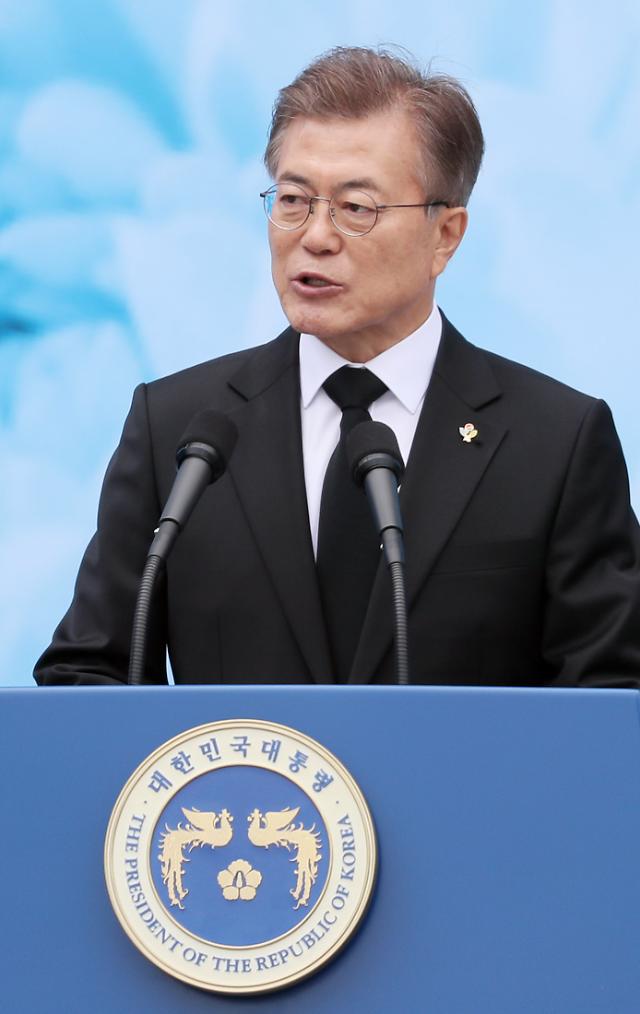
Chinese tourists are greeted by South Koreans wearing traditional clothes in Incheon International Airport. [Korea Tourism Organization]
Chinese travel companies are under pressure from state regulators to stop selling tour products to South Korea in the latest of retaliatory steps over the planned installment of an advanced US missile shield that soured ties between Asia's two major economies.
Travel companies in Bejing received irresistible oral guidelines from China's National Tourist Administration at a meeting late Thursday, according to tour company sources in China.
If confirmed, the move would have a far-reaching impact on South Korea's economic and other activities including preparations for its first Winter Olympics in the eastern ski resort of Pyeongchang in February next year.
South Korean Foreign Minister Yun Byung-se called for a negotiated settlement through diplomatic channels but vowed to take action if needed, after seeing whether China's retaliatory action runs against international norms.
"We will take steps after making a close study to see if (their action) runs against international norms," he told reporters after returning from a trip to Geneva. "Because Chinese measures have been informal so far, it's difficult to make an official response," he said. "We will watch how China formalizes it."
Data from the state-run Korea Tourism Organization showed South Korea received about 17 million foreign tourists including 8.06 million Chinese last year. More than 60 percent of Chinese tourists visited South Korea through travel agencies. Big-spending Chinese tourists were the main source of income at South Korean duty-free stores.
Along with invisible trade retaliation, Chinese state regulators have issued oral guidelines to ban the distribution of K-pop contents, dealing a blow to the dissemination of Hallyu (Korean culture wave) in China through official channels.
China has been regarded as Asia's biggest consumer of Hallyu that boosted sales of South Korean cosmetics and other K-pop related products.
Beijing has gradually stepped up the level of retaliatory steps aimed at blocking the deployment of a Terminal High Altitude Area Defense (THAAD) system in South Korea. Chinese officials claimed the system would "seriously" hurt strategic interests of China and other countries as well as the security balance in Northeast Asia.
Retaliation became conspicuous this week after Lotte, South Korea's fifth-largest conglomerate, pushed ahead with a land swap deal to let US troops install a THAAD battery in its golf course in Seongju some 200 kilometers (124 miles) southeast of Seoul.
Chinese media warned Lotte would face strong retaliatory steps such as a buyer's strike from angry Chinese consumers and tourists. Since the land swap deal was proposed in September last year, Lotte's business in China has been in trouble.
The retail giant heavily depends on Chinese consumers and tourists. Last year, about 70 percent of income at its duty-free stores came from Chinese visitors. Total sales at Lotte's business outlets in China were estimated at 3.2 trillion won.
Chinese media censorship and trade retaliation were visible from November when South Korea was rocked by political turbulence over a corruption scandal engulfing President Park Geun-hye. The control tower of diplomacy and culture has been left helpless.
Furthermore, Seoul has no effective tools or leverage to fend off the Chinese campaign. On Thursday, the South's foreign ministry urged China to exercise restraint but said Seoul would not change its policy.
Lim Chang-won = cwlim34@ajunew.com and Park Sae-jin = swatchsjp@ajunews.com




